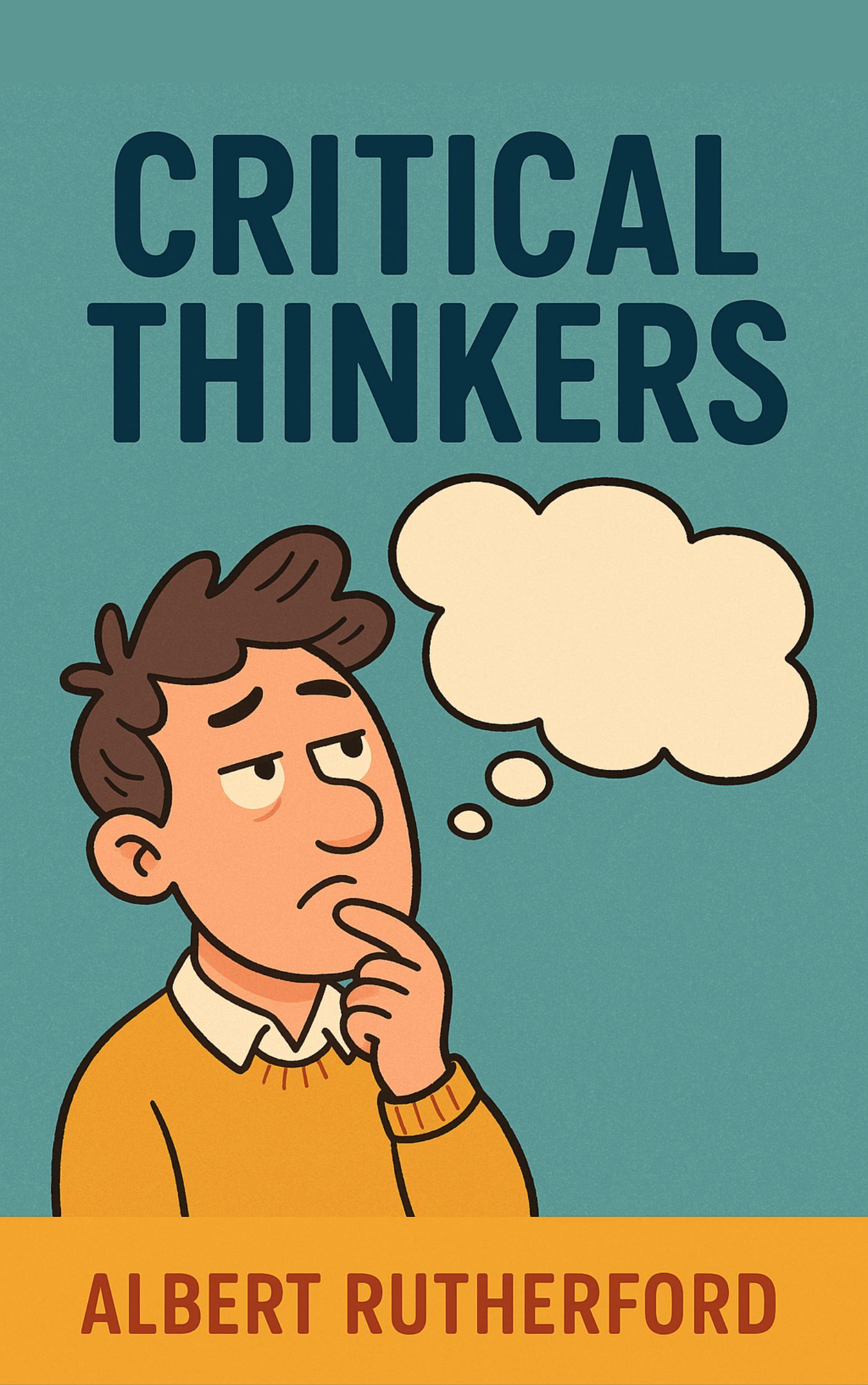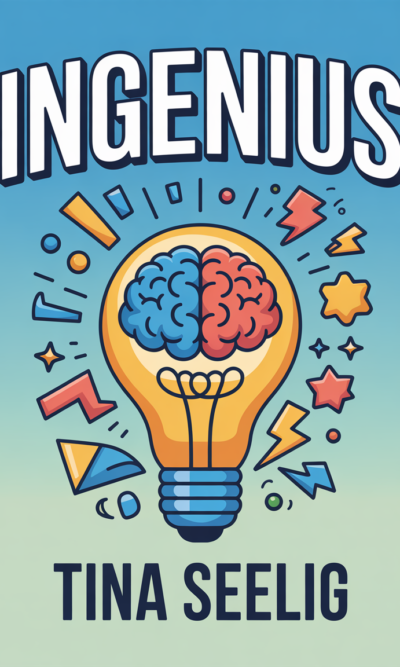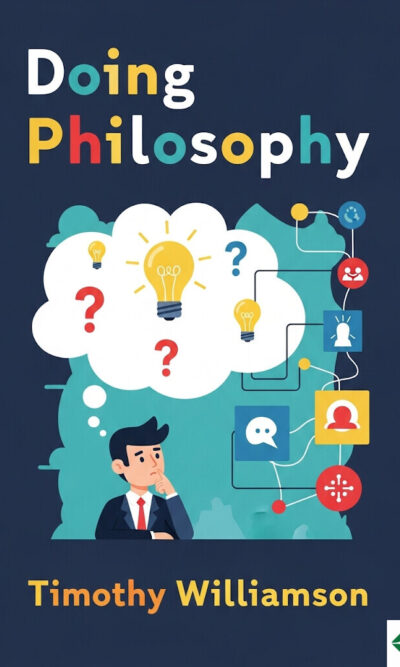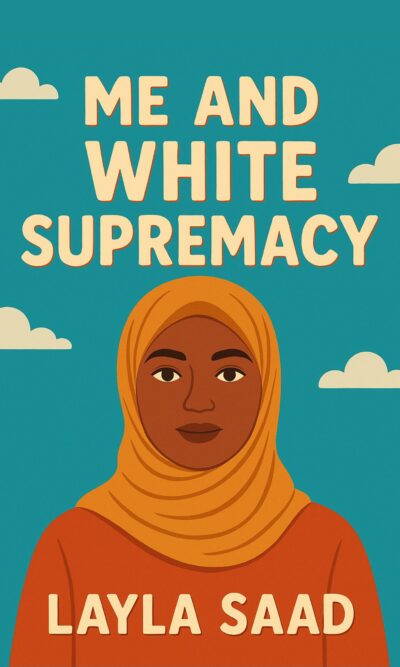Description
Critical thinking is one of the most valuable skills we can develop. It helps us question, reason, and make wiser choices in life. While it may feel like a modern idea, the roots of critical thinking go back thousands of years. Some of the greatest minds in history, from ancient Greece to the present day, have shaped the way we think, reason, and evaluate ideas. Their lessons remain useful today, giving us tools to navigate debates, decisions, and daily life.
One of the earliest voices of critical thinking was Socrates. He believed that the best way to reach the truth was through asking questions. Rather than telling people what to believe, he pushed them to think for themselves. His style of questioning, now called the Socratic method, forces us to look deeper at our own assumptions. Instead of accepting what we hear, we pause to ask: Why is this true? What evidence supports it? Could there be another explanation? Socrates showed that true wisdom begins when we realize how much we don’t know.
Building on this tradition, Aristotle, a student of Plato and a follower of Socrates, made his own contributions. He emphasized the importance of clear definitions and precise language. According to him, if we cannot define our ideas carefully, we cannot think about them clearly. Aristotle also encouraged the practical use of knowledge, reminding us that thinking is not just for abstract ideas but for solving real problems. His approach to categorizing ideas helped shape modern science and logical reasoning.
Centuries later, Thomas Aquinas carried these ideas forward in the Middle Ages. He believed that both faith and reason could work together. His method of thinking was unique because he often argued against himself. He would raise objections to his own beliefs and then attempt to answer them. This way, his ideas were tested from every angle. Aquinas also emphasized the connection between reason and freedom. He suggested that without rational thought, we cannot exercise true free will. His practice of questioning, debating, and refining ideas is still valuable for anyone trying to think more critically today.
The Renaissance brought us Francis Bacon, who shaped the beginnings of modern science. Bacon argued that human minds are full of biases that distort truth. He called these errors “Idols of the Mind.” They included personal biases, cultural biases, and even the influence of authority figures. To fight these idols, Bacon introduced a careful, step-by-step method of observation, experimentation, and reasoning. This became the foundation of the scientific method. For everyday life, his advice is timeless: don’t just trust your instincts or traditions—gather evidence, test your assumptions, and be willing to change your mind.
Another giant in critical thinking was René Descartes. Famous for the phrase “I think, therefore I am,” Descartes believed that doubt was the starting point of knowledge. His approach was to question everything, accepting only what could be proven beyond doubt. He suggested breaking down complex ideas into smaller parts, starting with the simplest truths, and building step by step toward greater understanding. Descartes also warned that our will often rushes to form opinions before our minds have gathered enough evidence. His reminder to slow down, doubt more, and think carefully is especially useful in today’s fast-moving world filled with misinformation.
Immanuel Kant, an eighteenth-century philosopher, offered a new way of thinking about knowledge and morality. He argued that while we may never fully know reality itself, we can use reason to understand our experiences. For Kant, critical thinking meant using our own minds rather than depending blindly on others. In his famous essay “What is Enlightenment?” he described enlightenment as the courage to think independently. Kant also developed the “categorical imperative,” which asks us to act only in ways we would want everyone else to act. This principle remains a powerful tool for ethical decision-making.
John Stuart Mill carried critical thinking into social and political life. A child prodigy, Mill grew up in a strict educational environment where his father trained him to think deeply and logically. Later, Mill became a defender of individual freedom. His book On Liberty argued that people should be free to live as they choose, as long as they do not harm others. Mill also championed women’s rights, believing that a society cannot progress if half its population is held back. His writings show how critical thinking is not only about abstract ideas but also about building a fairer society.
In America, William Graham Sumner criticized the education system of his time for encouraging conformity rather than independent thought. He believed students should be trained to question, analyze, and think for themselves. Sumner warned against ethnocentrism—the tendency to judge the world only through the lens of one’s own culture. By promoting open discussion and respect for diverse viewpoints, he hoped to create what he called a “critical society,” where people would constantly test their beliefs against reality. His ideas are still relevant today, as we face cultural divides and the spread of misinformation.
Modern thinkers Richard Paul and Linda Elder built a framework for teaching and practicing critical thinking. They highlighted common obstacles such as egocentrism (thinking only from one’s own perspective) and sociocentrism (thinking only from the group’s perspective). Their model focuses on three parts: the elements of thought, intellectual standards, and intellectual traits. The elements of thought remind us that all reasoning has a purpose, relies on assumptions, and leads to conclusions. The intellectual standards—such as clarity, accuracy, depth, and fairness—give us tools to measure the quality of our thinking. The intellectual traits—such as humility, empathy, integrity, and perseverance—help us develop the mindset needed to think critically over the long term.
When we put all of these lessons together, a clear picture of critical thinking emerges. It is not about being negative or simply criticizing others. Instead, it is about asking better questions, defining ideas clearly, gathering evidence, and being willing to challenge our own assumptions. It is about balancing doubt with curiosity, reason with imagination, and independence with open-mindedness.
From Socrates’s probing questions to Aristotle’s precise definitions, from Aquinas’s self-debates to Bacon’s scientific method, from Descartes’s rational doubt to Kant’s moral reasoning, from Mill’s fight for liberty to Sumner’s vision of independent education, and from Paul and Elder’s modern framework, the story of critical thinking is one of progress, courage, and clarity. These thinkers show us that critical thinking is not just a skill for philosophers or scientists. It is a daily practice for anyone who wants to make better choices, engage in meaningful discussions, and understand the world more deeply.
In today’s world, filled with overwhelming information, conflicting opinions, and endless noise, the need for critical thinking is greater than ever. It gives us the tools to cut through confusion, to seek truth instead of comfort, and to build a society that values reason, fairness, and independent thought. By learning from the greatest critical thinkers of history, we can sharpen our own minds and move closer to wisdom.





